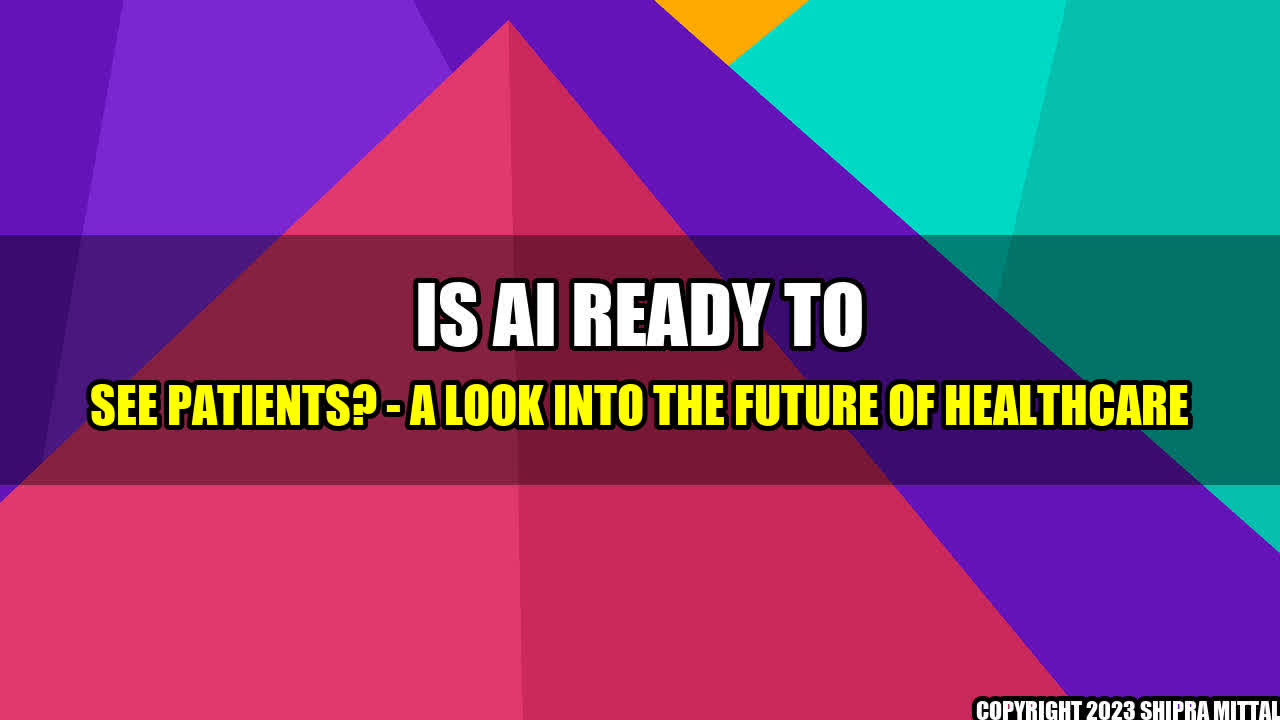Is AI Ready to See Patients?

A Look Into the Future of Healthcare

A Look Into the Future of Healthcare
John, a 65-year-old man with a history of heart disease, visited his doctor for a routine check-up. After going through the usual tests, the doctor noticed some irregularities in John's heart rhythm. The doctor suspected that John was having arrhythmia, a condition that can lead to stroke or heart failure if left untreated.
To confirm the diagnosis, the doctor suggested that John undergo an electrocardiogram (ECG) test, a procedure that measures the electrical activity of the heart. The procedure is usually done in a hospital or a specialized clinic.
But what if John's doctor could perform the ECG test in the comfort of his own office, using a device that is small, portable, and connected to an AI-powered system that can analyze the results in real-time? That's the promise of the latest AI technologies in healthcare.
These are just a few examples of how AI is transforming the healthcare industry. However, there are still many challenges that need to be addressed before AI can become a routine part of patient care.
In summary, AI has the potential to revolutionize healthcare by improving diagnosis, treatment, and research. However, there are still many challenges that need to be addressed before AI can become a routine part of patient care. To ensure that AI is used ethically and safely, it's important to involve all stakeholders, from patients and doctors to regulators and technologists. Only then can AI help us achieve the ultimate goal of healthcare – to improve and save lives.
Curated by Team Akash.Mittal.Blog
Share on Twitter Share on LinkedIn